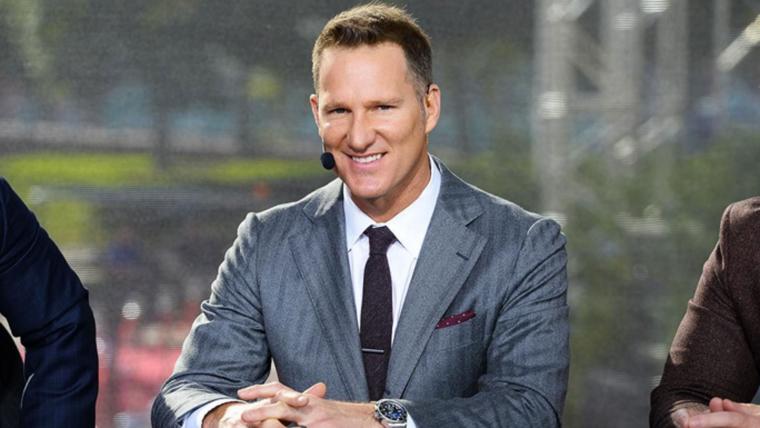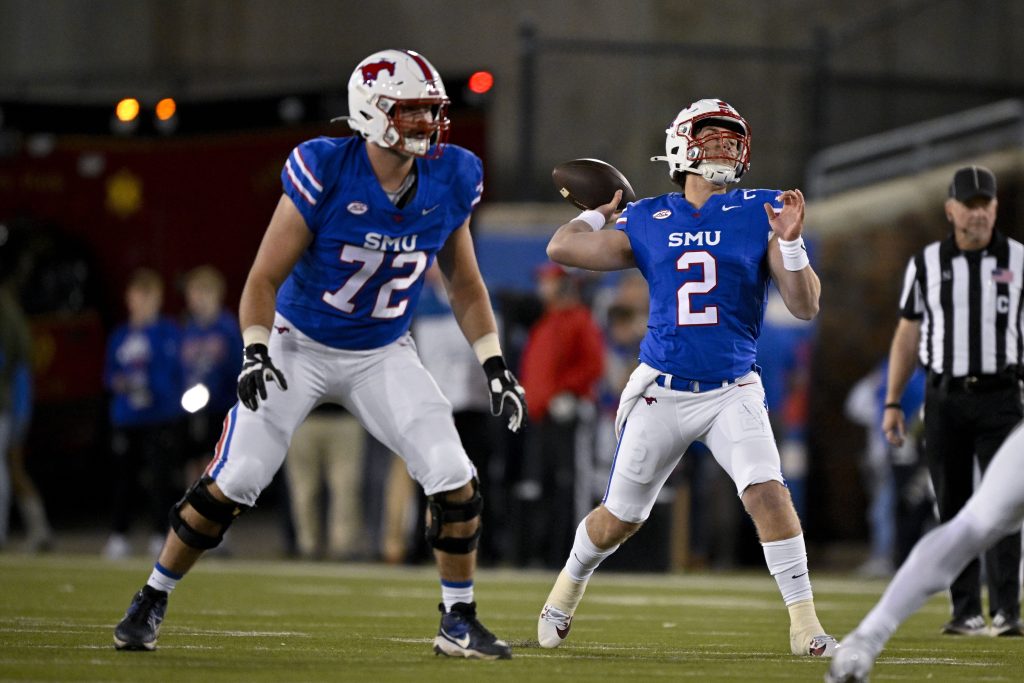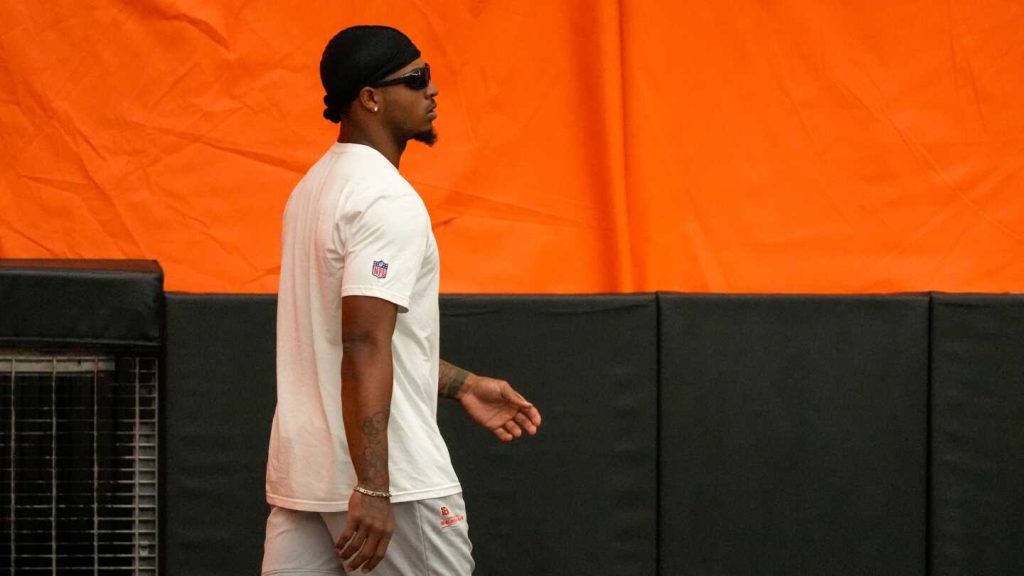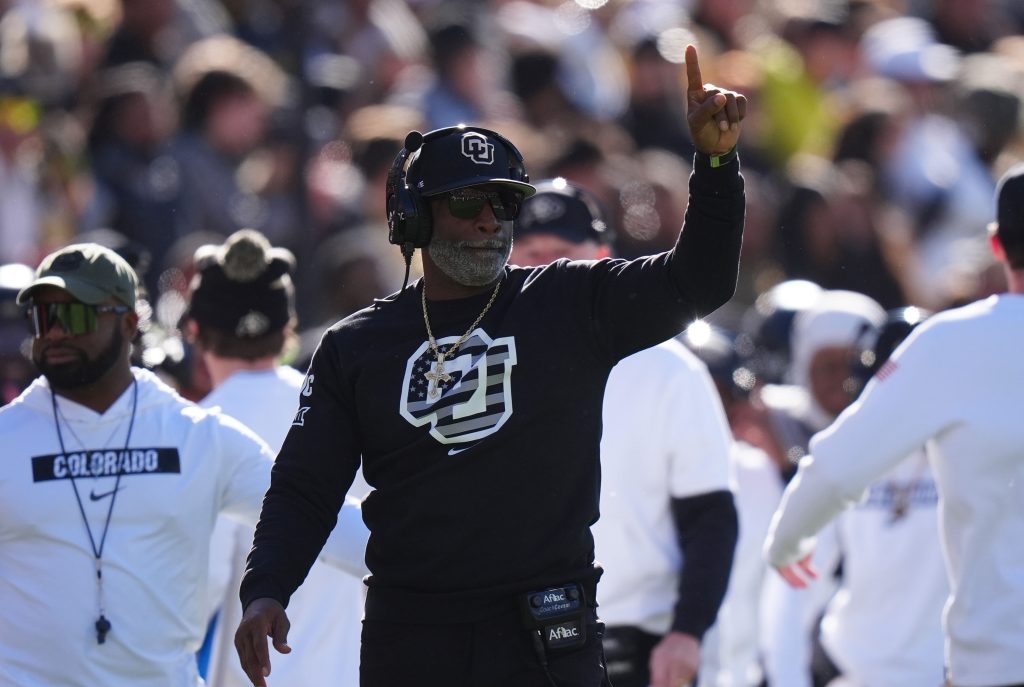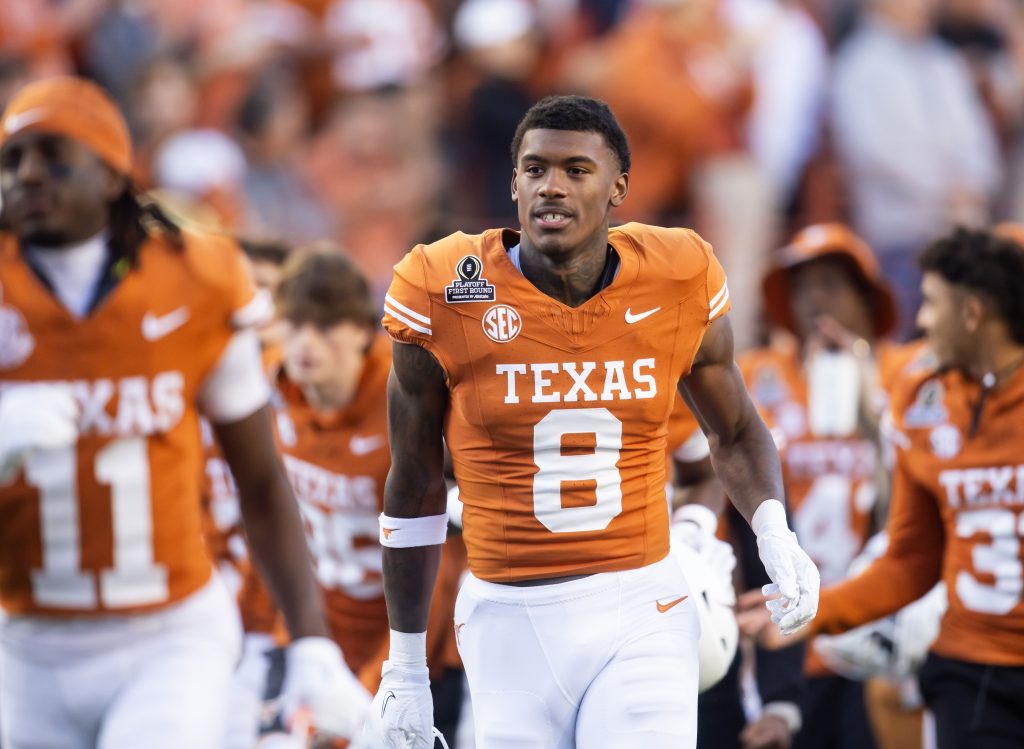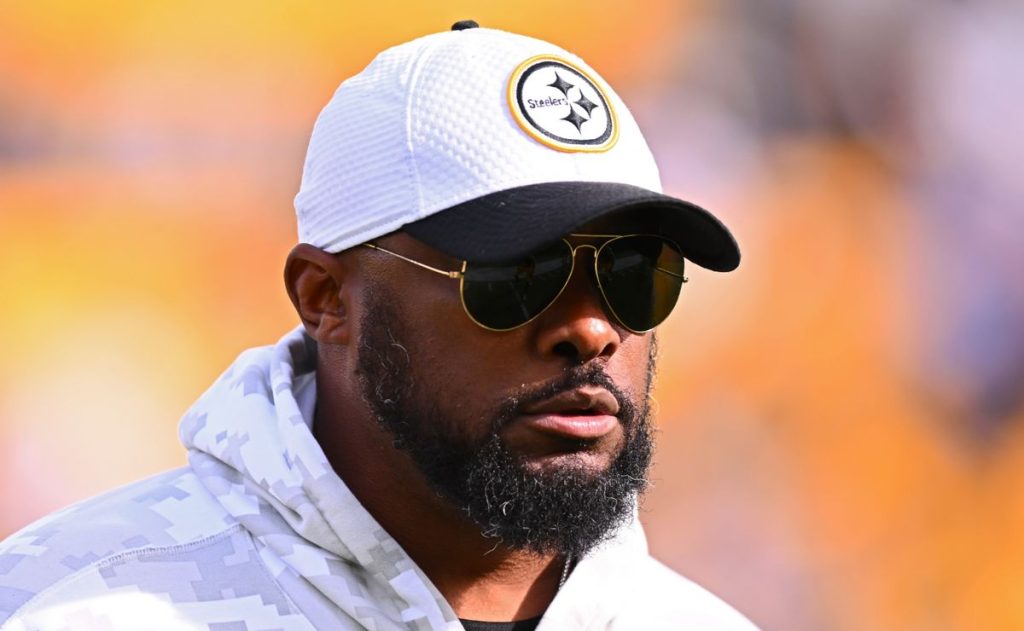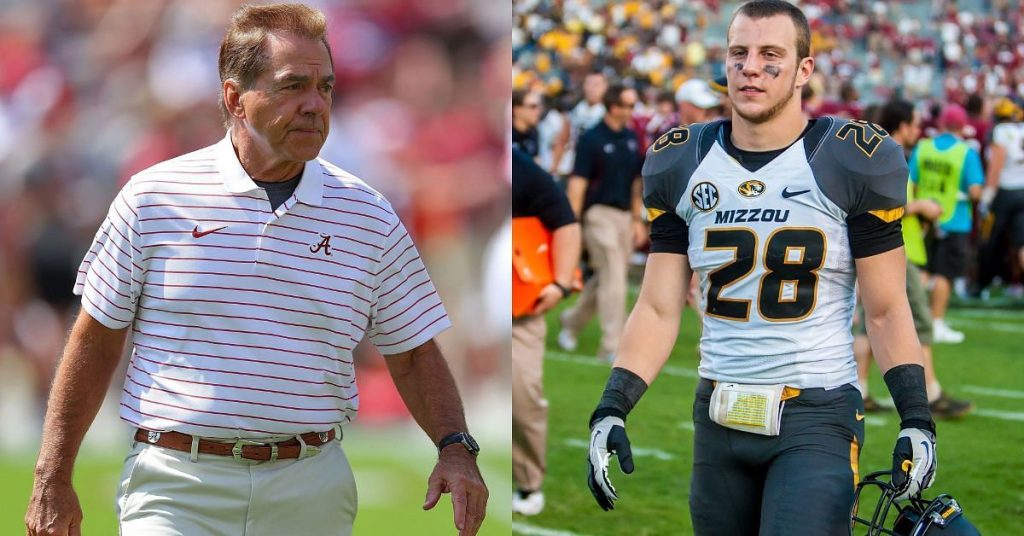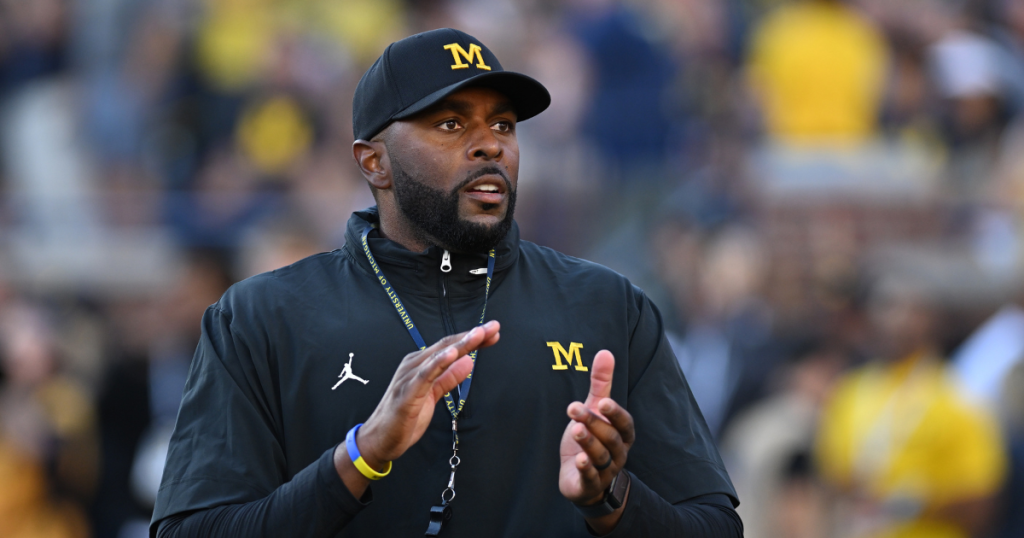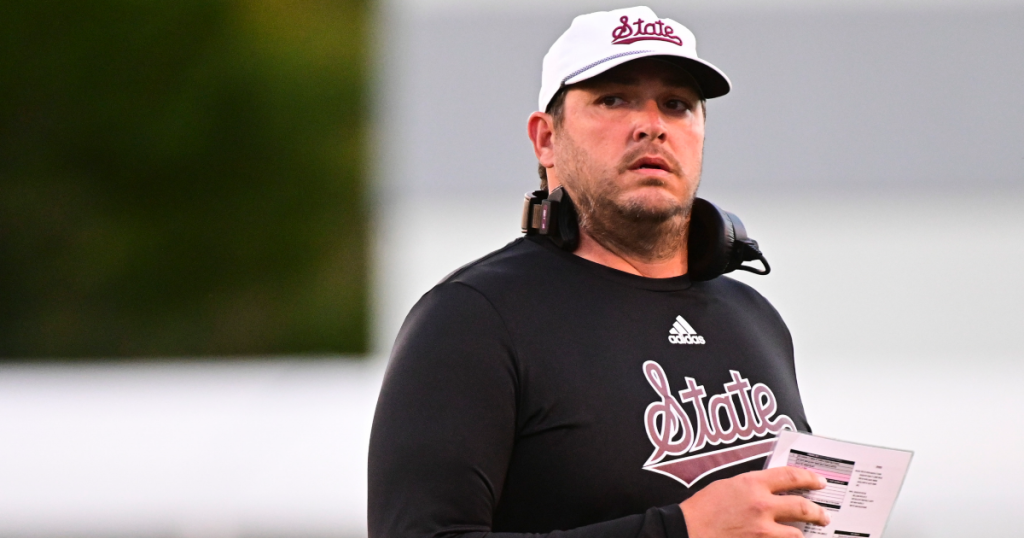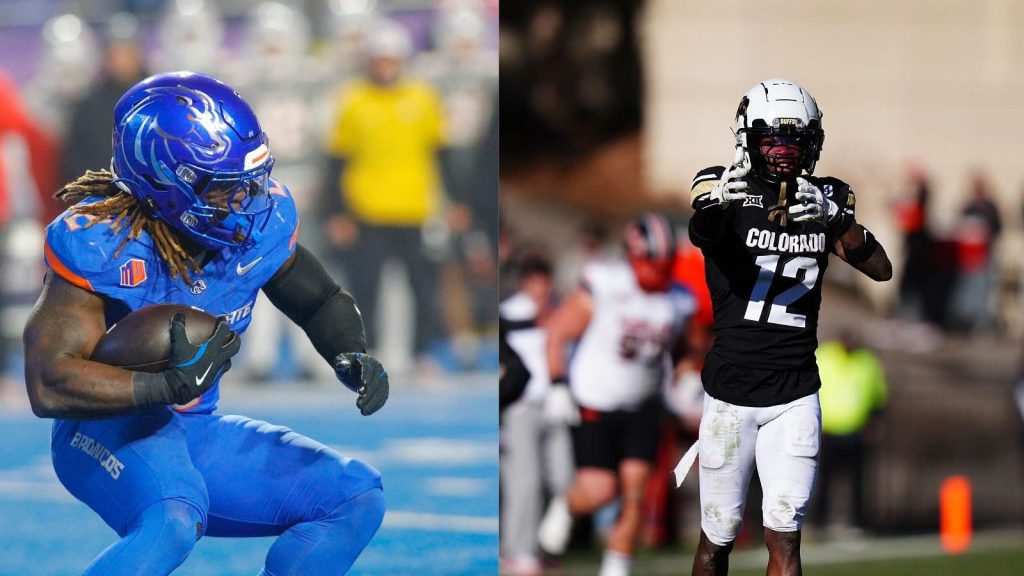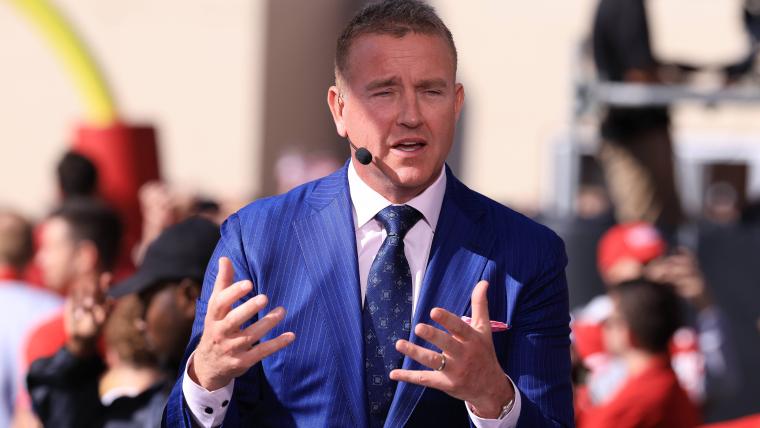Former Florida State quarterback and current analyst Danny Kanell has stepped into the spotlight, defending Illinois coach Bret Bielema after the controversial release of Josh Pate’s unofficial “JP Poll.” This poll notably excluded the Fighting Illini, despite their impressive victory over Pate’s 10th-ranked South Carolina Gamecocks in the Citrus Bowl on New Year’s Eve.
Kanell’s Support for Bielema
Kanell took to social media to express his gratitude towards Bielema for calling out Pate’s rankings. “Hey Bret Bielema, don’t you know??? Bowl games only count if the SEC wins. Otherwise, they didn’t really want to be there…thank you for dunking on Josh Pate.…[it] gets tiresome doing it all season,” Kanell tweeted. His words resonate with many who feel that certain teams, especially those outside the SEC, often go unrecognized for their accomplishments.
Bielema’s reaction to Pate’s rankings was lighthearted yet pointed. He joked that it was unofficially April Fools Day, showcasing his ability to maintain a sense of humor in the face of criticism. As of now, Bielema stands out as the only coach who has publicly addressed the issue, highlighting a growing frustration among coaches regarding media perceptions.
The Bigger Picture: Media Bias in Rankings
This incident raises a crucial question: Are media members giving fair assessments to teams outside the traditional powerhouses? Bielema himself has noted that the College Football Playoff rankings are among the few that can be trusted. He remarked, “I think that’s probably a great way to look at it because there’s going to be teams that are going to be held to a high standard that everybody just thinks they’re a top-20 team, and they can’t hold up to it.”
The Illinois coach elaborated on the unrealistic expectations set by the media, which can lead to skewed perceptions of a team’s capabilities. “On the flip side, there are teams that people think certain teams are going to be a bottom-20 football team, and they’re not,” Bielema pointed out. This highlights the need for a more balanced approach to rankings, one that considers each season on its own merits.
Illinois’ Recent Performance
Looking back at the 2023 season, Illinois finished with a record of 5-7, falling short of the high expectations set the previous year. In 2022, the Fighting Illini had a successful campaign, finishing 8-5 and competing in the ReliaQuest Bowl against Mississippi State. Entering that season, they were projected to finish in the lower tier of the expanded Big Ten but surprised many by ending up fifth, trailing only College Football Playoff-bound Indiana, Penn State, Oregon, and eventual national champion Ohio State.
This rollercoaster of performance raises an important point: How should teams be evaluated when their seasons fluctuate so dramatically? Bielema’s insights suggest that the rankings need to be more dynamic, reflecting the unique circumstances and performances of each team year by year.
The Future of Rankings and Analyst Perspectives
As we look ahead to the next college football season, it will be fascinating to see if analysts like Kanell continue to advocate for teams that feel overlooked. Will there be a shift in how rankings are approached, or will the same biases persist? With Bielema’s team already ranked No. 7 in On3’s way-too-early rankings for next season, it seems that the Fighting Illini are poised to make a statement.
Bielema’s comments about the media’s role in shaping public perception are particularly relevant in today’s college football landscape. As teams strive for recognition, the importance of fair and accurate rankings cannot be overstated. Coaches and players work tirelessly to achieve their goals, and they deserve to be evaluated based on their performance, not preconceived notions.
The Call for Change
In a sport as competitive as college football, the stakes are high. Every game counts, and every victory should be acknowledged. The conversation sparked by Kanell and Bielema is just the beginning. It’s a call for change in how rankings are determined and how teams are evaluated.
As fans, analysts, and coaches alike, we must ask ourselves: Are we giving teams the credit they deserve? Are we allowing biases to cloud our judgment? As the next season approaches, it’s crucial for everyone involved in college football to strive for a more equitable assessment of talent and performance.
In the end, the passion for the game should drive us to seek out the truth and celebrate the achievements of all teams, not just those from the traditional power conferences. As we gear up for another exciting season of college football, let’s keep the conversation going and ensure that every team gets the recognition it deserves.

